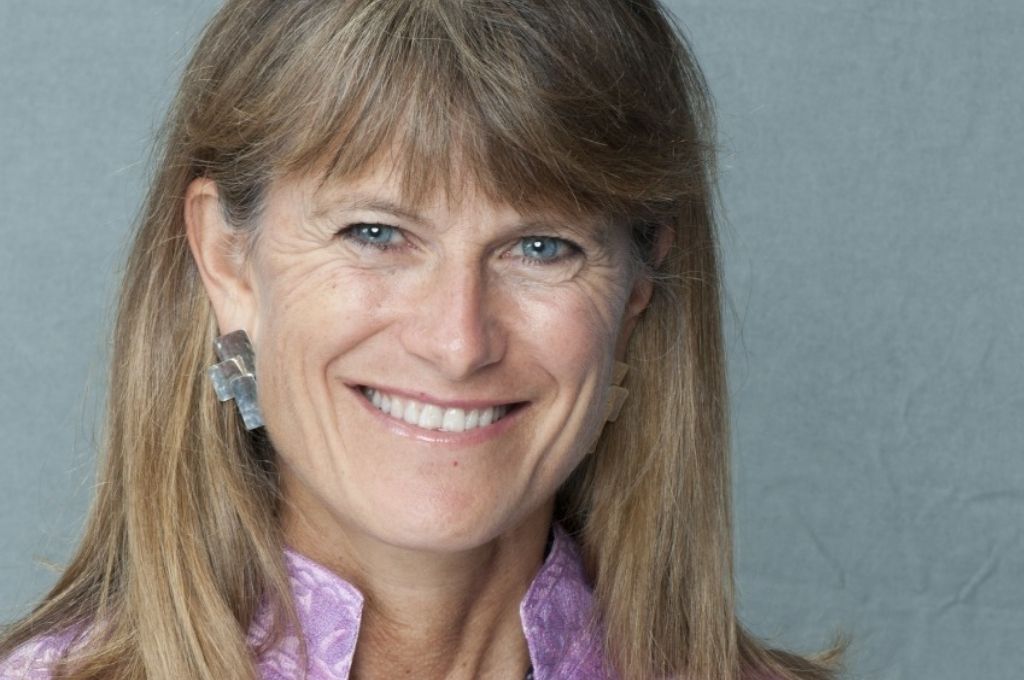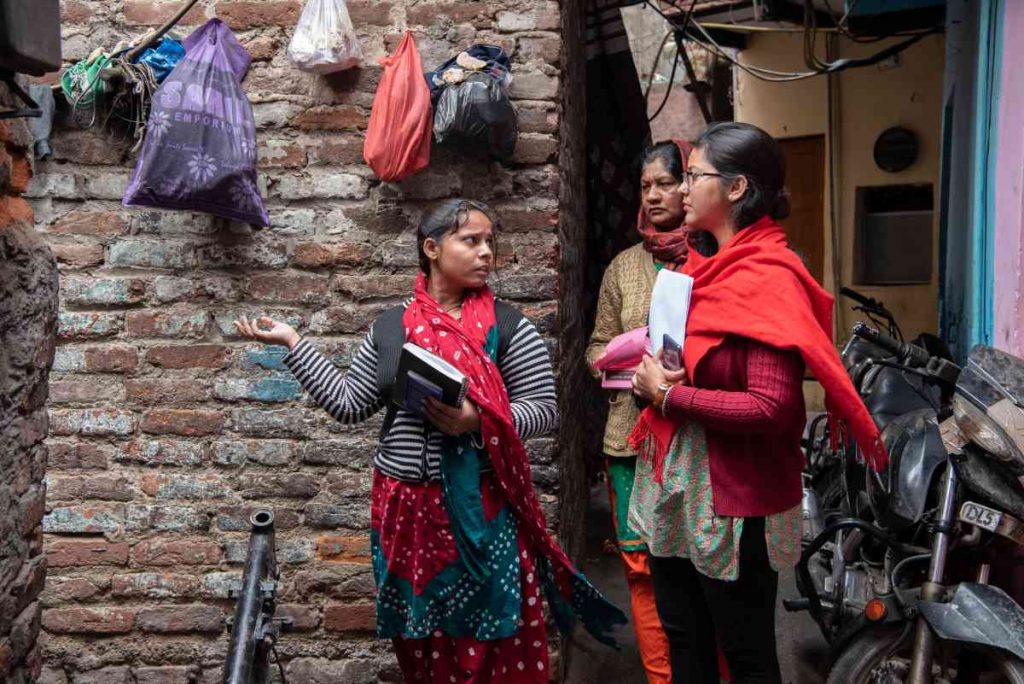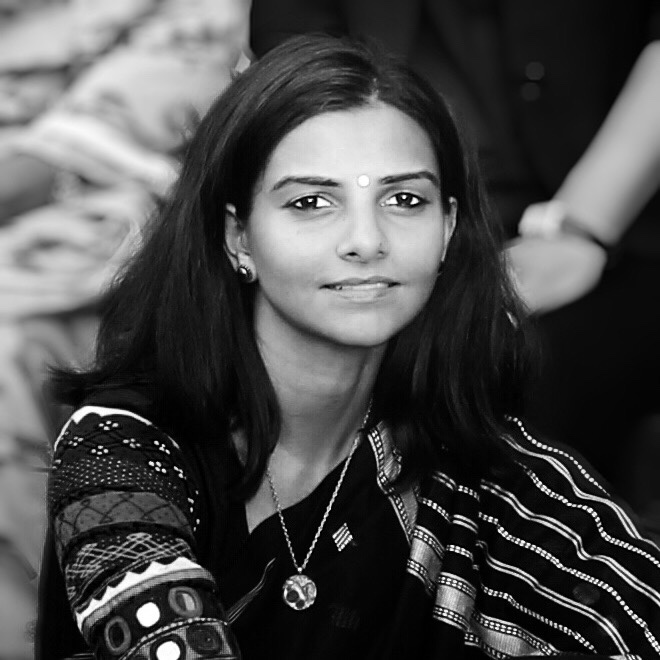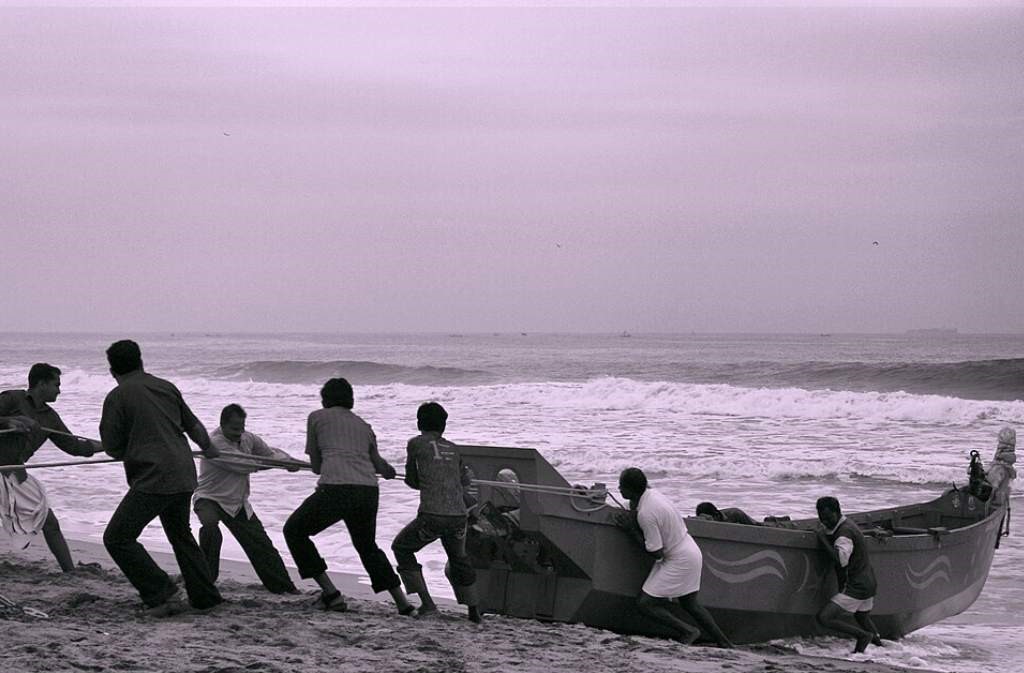Jacqueline Novogratz is the founder and CEO of Acumen, a global nonprofit that invests in social enterprises serving low-income communities across South Asia, Africa, Latin America, and the United States. Currently, she also serves on the boards of the Aspen Institute and 60 Decibels. Jacqueline is also the author of The Blue Sweater: Bridging the Gap between Rich and Poor, and more recently, Manifesto for a Moral Revolution. In 2017, Forbes listed Jacqueline as one of the World’s 100 Greatest Living Minds.
In this interview with IDR, Jacqueline speaks about the idea of moral leadership—what it is, why we need to cultivate it, and how it enables us to navigate the tensions and complexities of working in social impact.

Picture courtesy: Jacqueline Novogratz
Related article: Lessons from my journey of serial social entrepreneurship
You often speak about moral leadership and why it is critical to building a better world. Could you tell us a little about this idea?
Over the years, I have observed that the world we live in has raised too many leaders with a definition of success based on money, power, and fame. And the more of these we get, the more insecure we get; we start to see the world as having scarce resources, and feel that we have to keep things for ourselves.
Moral leaders are those who are constantly asking what’s good for other people, not themselves.
The idea of moral leadership challenges this. Moral leaders are those who are constantly asking what’s good for other people, not themselves. The way I have tried to define moral leadership—and moral revolution—is not as a prescriptive or righteous set of rules. Instead it is grounded in the recognition that, in an interdependent world, a moral leader has little choice but to navigate competing belief systems and tools, in order to make the kind of change that’s needed.
As social entrepreneurs, one of the big tensions we have to hold is between the world as it is—which can be ugly and messy—and the idealism and audacity to imagine what the world could be. And it is within this tension that it becomes important to operate. We have to constantly navigate existing unjust, broken systems while at the same time reimagining them. That is extremely hard work and where moral leadership can play an important role.
How does one begin to do some of this work?
In my experience, the most effective social entrepreneurs begin by clearly articulating the problem that they are there to solve. That might sound like an obvious thing to say, and yet, it’s actually quite rare. I often meet people who are incredibly well-intentioned, but they aren’t able to identify what their Northstar is; what’s really driving them. They say, “I want to make the world a better place” or “I want to help women”. These are wonderful sentiments but it is very hard to create any kind of business or operational plan when you define the problem you’re solving in this manner. Instead, you need to say, “I want to provide access to reproductive services for low-income women.”
As moral leaders, we need to have the humility to recognise where markets work, and where they fail.
Once you’ve identified the problem that you’re solving, then you have to really tear it apart to understand what role the market might play in providing a solution, so that people have opportunities for choice. There are some areas, for example, primary healthcare, where markets can play a role, but they certainly will not be able to deliver quality goods and services to the poorest. As moral leaders, we need to have the humility to recognise where markets work, and where they fail. And we have to come to this understanding not with ideology, but with curiosity.
Then, as you start to build your business model or your operating model, know what role you can play in the process and what role you need others to play. This is where you have to learn to partner with humility and audacity. None of the enterprises we have funded at Acumen would have really gone to scale without an element of partnership, especially an element of partnering with another sector, be it government, corporations, or philanthropy.
What can leaders do to balance the needs of their organisations, with those of the communities they seek to serve?
As I mentioned earlier, navigating and making sense of such tensions is the realm of the moral leader. If you see yourself as an entrepreneur, but also as a seeker, you won’t come into the community with a set of solutions nor a concrete set of assumptions. You have to have the inquiry and curiosity, combined with a willingness to change.

We have to constantly navigate existing unjust, broken systems while at the same time reimagining them. | Picture courtesy: Saumya Khandelwal
It’s too easy to say that the community always knows what it needs and what it wants. Many communities have issues of gender, religious hierarchy, political hierarchy, and class hierarchy, and so who decides for the community becomes a critical moral question. As a social entrepreneur, it is your job to understand this, not from a place of judgement but with the humility to see the world as it is.
When I was starting the first women’s microfinance bank in Rwanda, back in the 1980s, my assumption was that the community would know what they want, and all I had to do was go into the villages and speak with them. At the beginning, I was very confused because even though I was building a women’s bank, the men were the only ones who ever spoke. Even when I proactively asked the women what they want, if there was a man in the room, they would either not answer, or answer in a way that I knew wasn’t true. Finally, after I had built a lot of trust, I sat some of the women down and asked them, “What is going on here?” They responded saying that if a man is in the room, they don’t have a voice.
Often, society celebrates those who are doing the easy thing, not the right thing.
This was never in my set of assumptions, partly due to my own privilege and worldview. Once I realised that to build a women’s bank we need to have only women in the room to make decisions, it was a game changer. But slowly, even within these groups of women, I started to understand who the power players were and who the moral leaders were—the ones listening to others in their community and making decisions on behalf of the community in a way that the community valued.
But all of this can be hard to do, especially when you’re young and just starting out. Often, society celebrates those who are doing the easy thing, not the right thing. Those who have figured out a way not to listen, but to speak the language of listening; who don’t necessarily understand the community, but can be very righteous in saying that the community knows everything. They’re the ones who often end up raising grant money, because they’re saying everything that donors like to hear. But to me, that’s not the definition of success, because it’s not about building community.
Related article: What it takes to be an ‘Abundant Leader’
We’ve spoken about moral leadership in the context of solving problems on behalf of others. What does this look like within marginalised communities who experience systemic oppression?
From what I have seen in my work with more than a thousand social entrepreneurs, I think the most important thing is having one person who believes in you and who is in your court. That goes a long way in building one’s confidence. With the Acumen Fellowship, I’ve observed that sometimes people from marginalised communities may come in with a lot of anger, because they’re fighting against oppressive systems. And they don’t believe that people want to give them a seat at the table. If you sit at the table with your arms crossed and your chair pushed back, you’re also sending a message that either you don’t want to be at the table, or that you don’t believe the others want you at the table. This creates a standoff, and everyone has to do the work to change.
It is important that we recognise that access to something is only part of the solution.
Personally, and at Acumen, we have had to learn a different kind of courage to speak up, not only when the system is getting in a person’s way, but also when they are getting in their own way. What helps in doing this is having a cohort—a loving and supportive community where we can learn these skills together. Here, by ‘love’ I don’t mean blind, unquestioning support. I mean real love, to hold each other accountable, to say the hard things, and to be a mirror to each other.
Privilege plays an important role here, and it is important that we recognise that access to something is only part of the solution. As Amartya Sen would say, if a person from a marginalised community doesn’t have capability or the confidence to make use of the market, then it doesn’t matter if they have access to it or not. In the same way, those of us with privilege can help others to take on a problem without solving it for them, give them confidence, walk beside them but not in a way that solves their problems, not in a way that has that saviour thing of “I will help you and feel good about myself”. But in a way that enables others to be their best selves.
Related article: This is what is holding social entrepreneurs back
Lastly, what does it take to cultivate some of these qualities and become a moral leader?
I firmly believe that leaders aren’t born. Nor do I believe that as human beings, we’re born with character—we learn it. The work that it takes to develop your own moral compass requires, first and foremost, quieting yourself to be self-reflective. It involves learning to listen to other people in a deep way, including how they see you. And that can be incredibly painful, since it requires you to put yourself in situations with people who might disagree with your beliefs and how you operate. But if we’re willing to be uncomfortable, and if we can see that discomfort is a proxy for progress, I think it can be a little less painful.
All of the things that I’ve mentioned—listening, immersing yourself, paying attention, treating communities as true participants rather than as passive recipients—are not just principles, but practices. The more you practice them, the more you become them. For instance, courage is something that takes longer to cultivate for some of us, because the world has more than a thousand ways of taking our courage away. But if we practice saying our truth, even when our lips are trembling, and learning to say them in ways that other people can hear, then you start to build those things inside of yourself that no one can take away from you. And then you know, you’re on the path.
Moral leadership is a verb, it is a practice. The best we can do is to be on the path of becoming a moral leader, and for this reason, I would hesitate to name a living moral leader. I also don’t think we should worry about whether we’re being called a moral leader or not. We should worry about whether we’re moving further along the path, or if we’re falling off. And if we do fall off—and some do—we must find a way back on. Finally, I would say that I feel the same way about moral leadership as I do about heroes. Even though I have many, I don’t think we need another hero right now. We need millions and millions of heroic acts, which is why this kind of moral leadership has to be all of our work, not just some of our work.
—
Know more
- Listen to Jacqueline Novogratz’s TED talk on what it takes to make change.
- Read this Harvard Business Review piece on a new model for ethical leadership.





